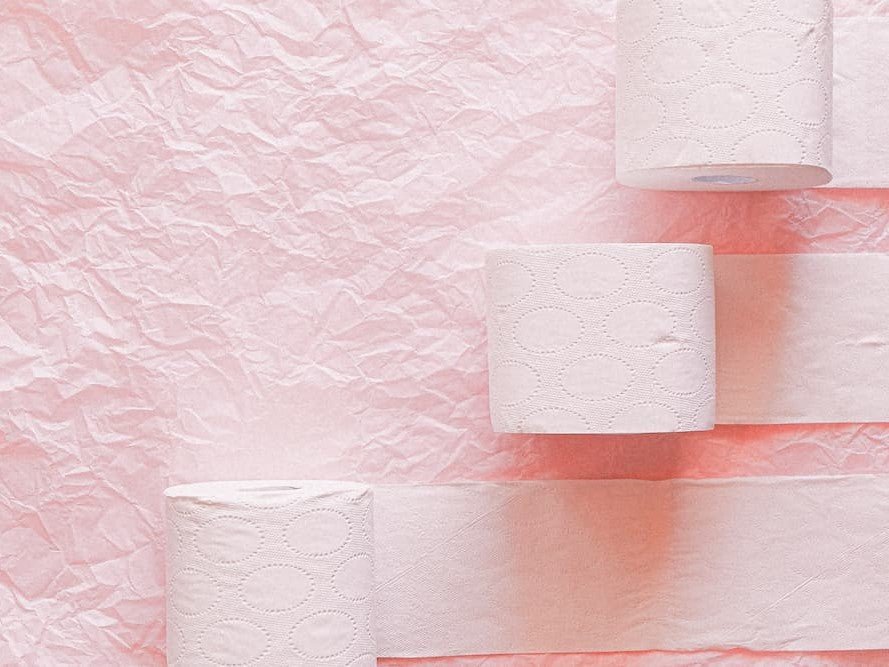The hormonal coil and the period - two very special friends have found each other here. Because for many people, since one (the coil) has been there, the other (the period) often just doesn't feel like coming. You wait and wait, but she skips the monthly date without warning - so you start to worry. Sometimes she does come by, but only for a very short time. Hello, bye, see you sometime.
Is this the new normal?
Summary
Changes in bleeding caused by the IUD are normal.
The hormones released by the contraceptive coil can cause changes in the normal cycle process
According to the package insert, bleeding may occur during the first three to six months, even during the actual menstrual break.
Table of contents
Contents
1. No period with IUD - what's the reason?
Individual experiences vary, of course, and there are many women who don't notice any difference. But many stories have one thing in common: with an IUD, something down there is different (or not at all). But why?
To find out, it's worth taking a closer look at the Jaydess package insert - and yes, sometimes it's worth not crumpling this paper monster straight back into the package (has anyone ever managed to fold the thing up nicely again?).
So first of all, to reassure you: changes in bleeding are relatively normal. More specifically, heavier or lighter menstrual bleeding occurs in more than one in ten women.
There is even a separate section dedicated to the topic of "irregular or rare bleeding". Here you can read that it is "overall likely" that the bleeding will gradually decrease month by month or even stop completely . But we already know that much, the question of why still remains.
If you continue to read the package insert, past the side effects and the like, you will actually find a kind of explanation: the hormones that the contraceptive coil releases can lead to changes in the normal cycle process - and that is definitely intended, because the aim is to prevent pregnancy. Instead of building up a thickened mucous membrane in which a fertilized egg could implant, the uterus saves itself the work. And because there is no mucous membrane, there is no reason to remove it with bleeding. It's somehow logical.
However, you still ovulate because the natural hormonal cycle is maintained.
When I asked the IUD manufacturer Jenapharm, I also found out that because the IUD “does not have a daily break like the pill, […] different bleeding patterns can occur. This can be related to the age, the length of time the Jaydess has been in use or in place, and the original strength, duration and regularity of the woman’s menstrual bleeding.”
Did you know : It is not uncommon for bleeding to stop during the pill break! Find out morehere .
2. Heavy bleeding after insertion of the coil
So far, so good. But what about the frequent, continuous bleeding immediately after insertion? There is an explanation for this too. The body probably needs to get used to the hormonal coil first.
According to the package insert, bleeding can occur during the first three to six months even when you are not in your period . There is no information about how often it happens, but if you ask around, it happens quite often and VERY heavily. And after the ebb comes the flood - or the other way around. It's logical in a way - the body isn't really used to having a foreign body stuck in it all the time -> natural reaction: get rid of it .
It's all very confusing. It's good to know that you're not alone.
And one more thing is very important: If your period doesn't come because of the coil, that is NOT a sign of pregnancy. However, if you are worried that the coil has secretly disappeared during the whole spectacle, you should take a pregnancy test as a precaution. Unfortunately, there is no way around it.
3rd period & spiral
Yes, the coil can lead to changes in your period - and that's not uncommon. Initially, constant bleeding is likely; as is the complete absence or lighter period. But there's nothing you can really do about it. That's OK, after all, you usually already know about it (haha) or maybe that's exactly what you want.
However, this intervention in the body's own rhythm should not be underestimated - after stopping, it can take a while for the body to get used to its own cycle again. But with all this confusion, one thing is particularly helpful: being prepared for everything and being able to adapt.
If your period changes from heavy to dry, you can easily switch your tampon subscription from super to mini, for example. And it's best to have a few panties on hand to start with.













































